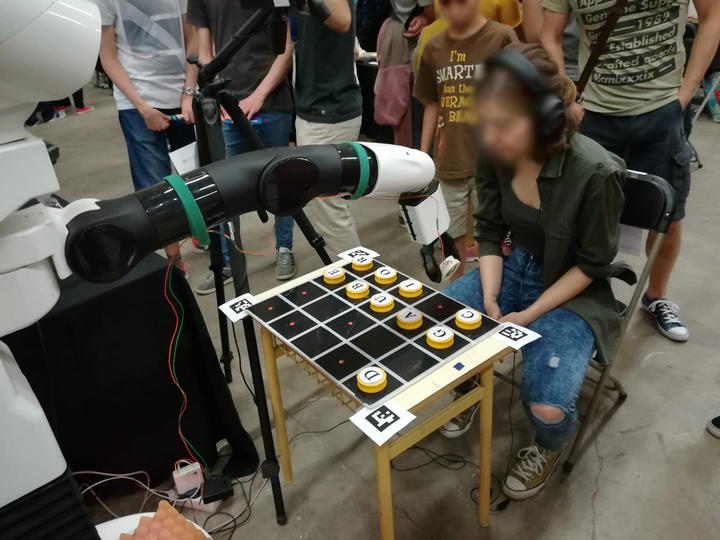
Abstract
In recent years there has been an increasing interest in deploying robotic systems in public environments able to effectively interact with people. To properly work in the wild, such systems should be robust and be able to deal with complex and unpredictable events that seldom happen in controlled laboratory conditions. Moreover, having to deal with untrained users adds further complexity to the problem and makes the task of defining effective interactions especially difficult.In this work, a Cognitive System that relies on planning is extended with adaptive capabilities and embedded in a Tiago robot. The result is a system able to help a person to complete a predefined game by offering various degrees of assistance. The robot may decide to change the level of assistance depending on factors such as the state of the game or the user performance at a given time. We conducted two days of experiments during a public fair. We selected random users to interact with the robot and only for one time. We show that, despite the short-term nature of human-robot interactions, the robot can effectively adapt its way of providing help, leading to better user performances as compared to a robot not providing this degree of flexibility.